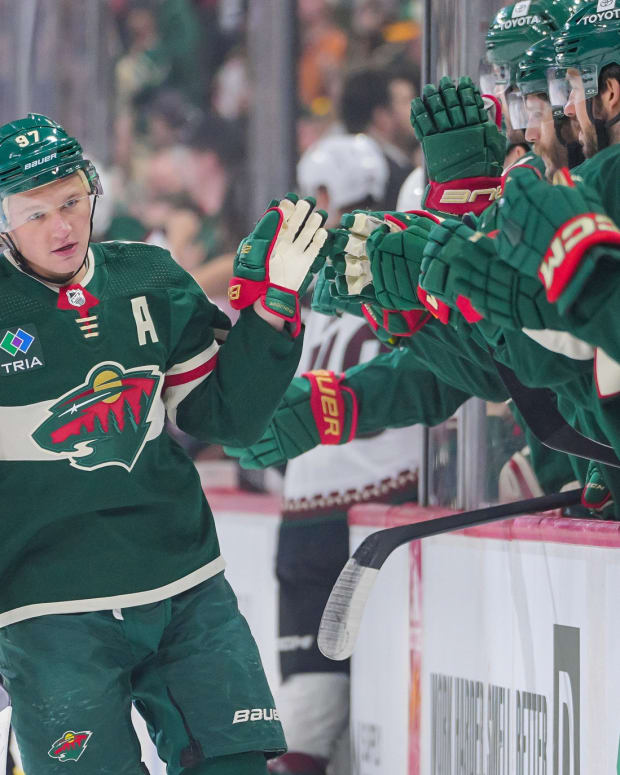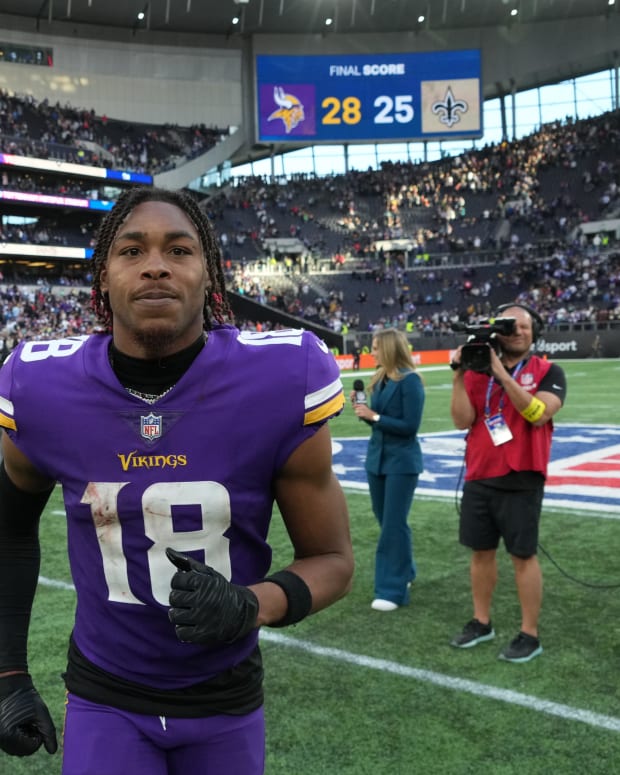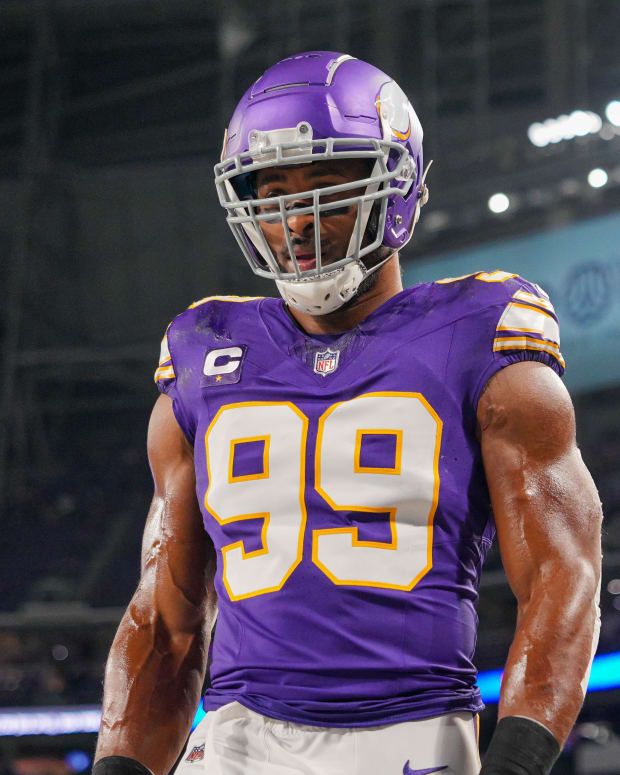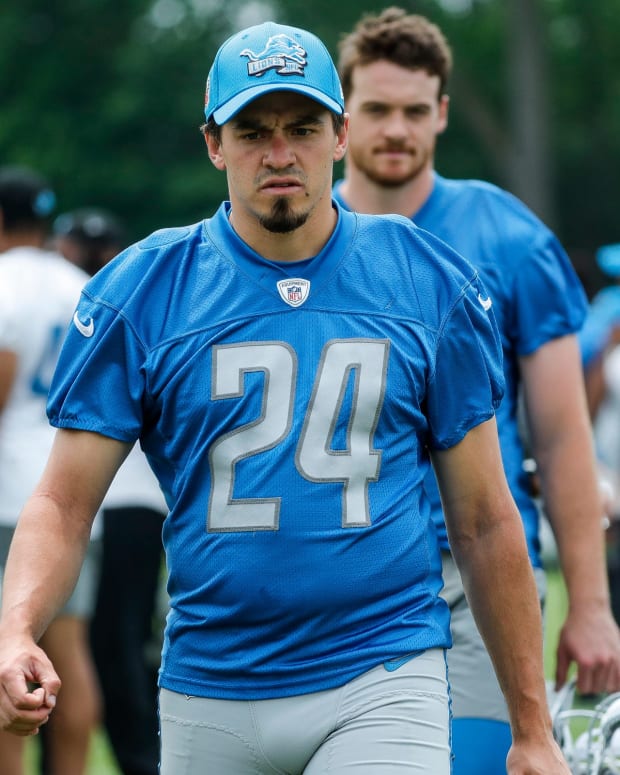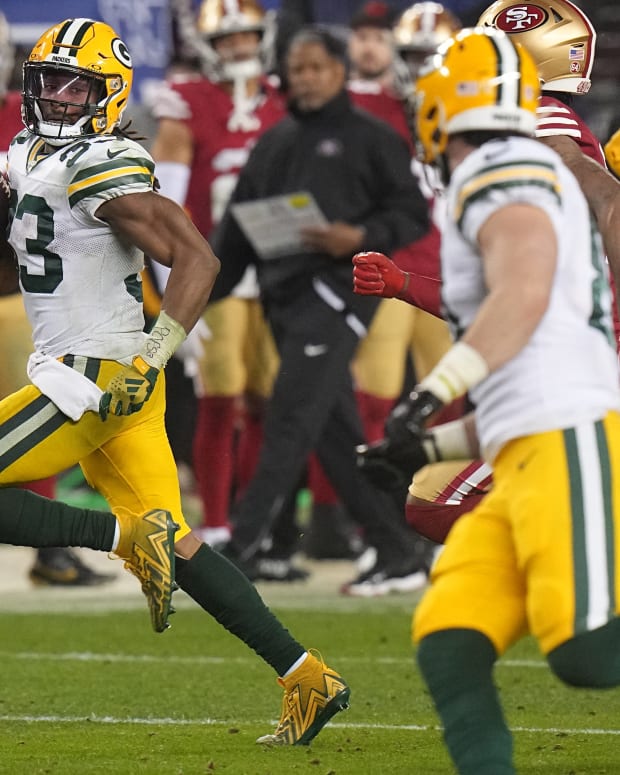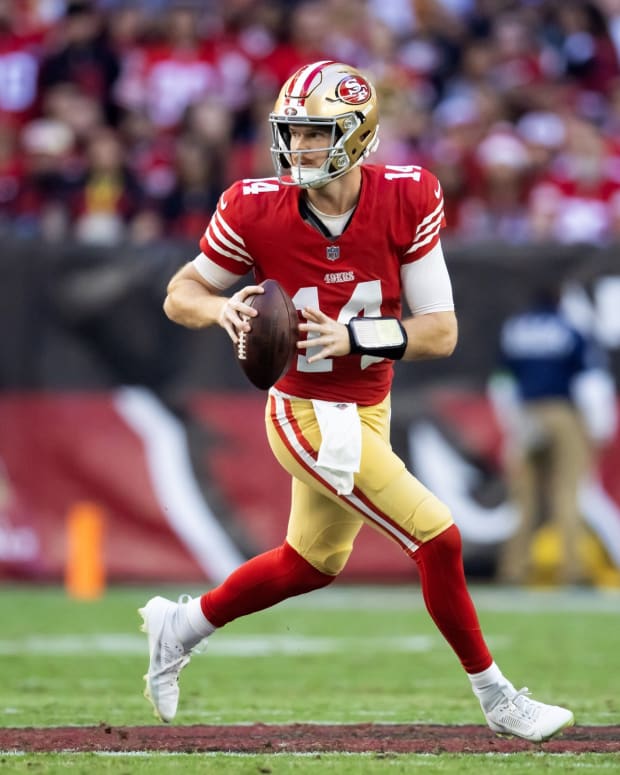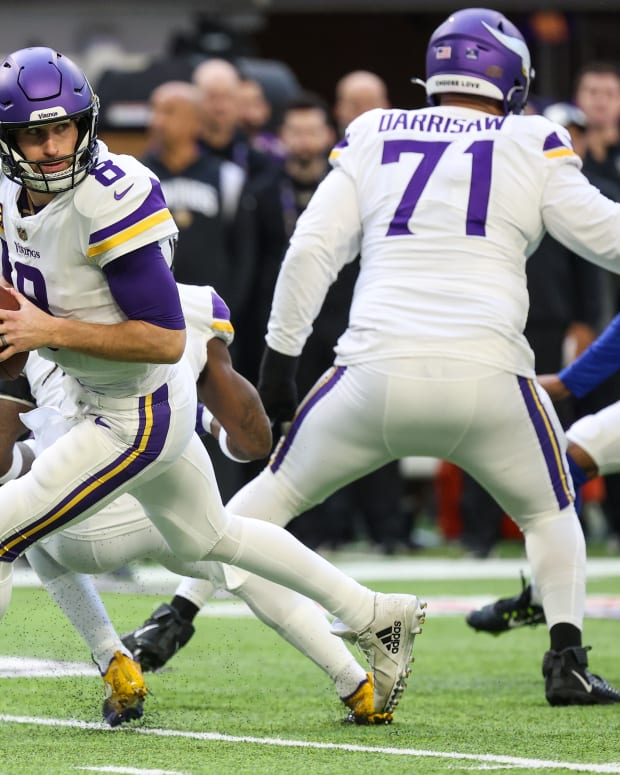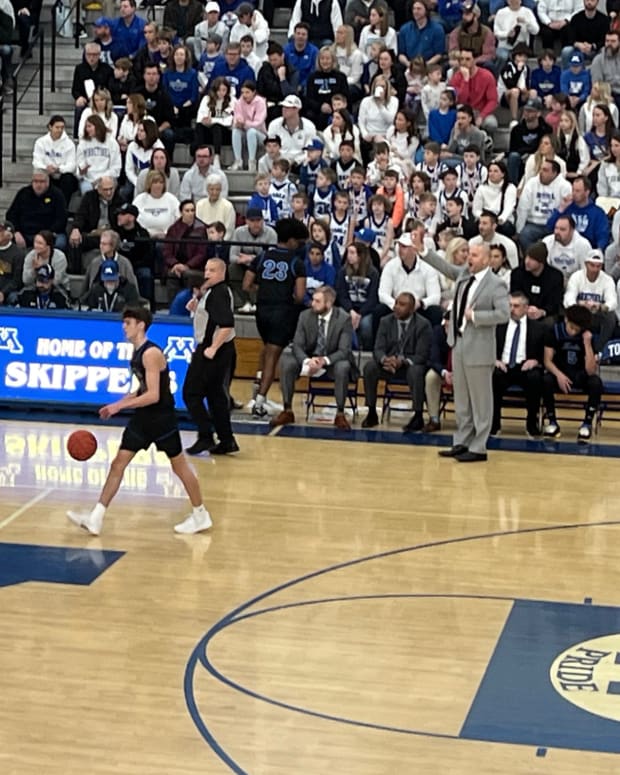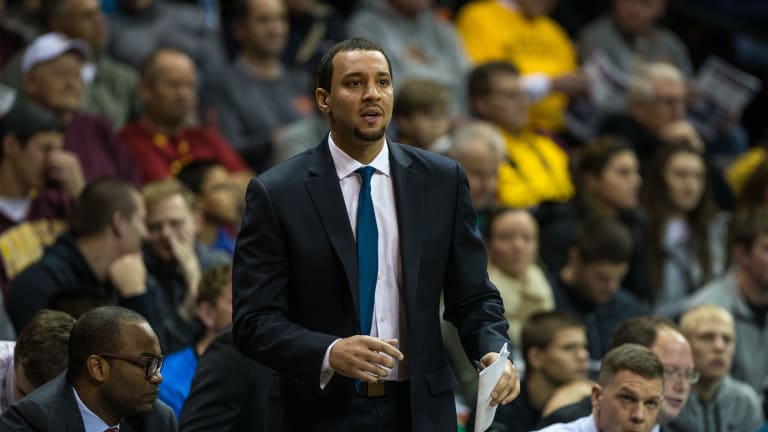
Did Gophers interview other top options before hiring Ben Johnson?

On Monday, the Universtiy of Minnesota announced the hiring of Ben Johnson as the new men’s basketball coach. Johnson is a former Gopher player, former Gopher assistant, and now, the program’s 18th head coach. Here are three key questions as the Johnson era begins:
How will he adapt to the head coach learning curve?
The biggest question surrounding Johnson is his inexperience as a head coach. How will he handle being the man in charge of a program?
The truth is that few people know. By all accounts Johnson has a great basketball mind, and he undoubtedly has an arsenal of plays and schemes ready to deploy – something that will be a nice change of pace from Richard Pitino, who often left fans wanting with a lack of offensive sets or in-game adjustments.
But he’s never been a head coach, and that presents a multitude of challenges that are difficult to quantify. Many coaches, in fact, struggle in their first head coaching gig, only to do significantly better the second time around once they’re able to fully grasp the job; that doesn’t mean they’re bad coaches, it just reflects the circumstances of what the job entails.
"You don’t end up with a program that wins games by hiring someone who knows how to recruit talent, you hire someone who knows how to win games and subsequently will get a program that attracts talent."
Then there’s the Big Ten factor. Johnson will be going up against some of the brightest minds in college basketball every night. Tom Izzo, Matt Painter, and the like present a daunting challenge – and that’s before factoring in the learning curve that comes while being in charge.
Archie Miller went 139-63 at Dayton and now finds himself out of a job after four years and a 67-58 record at Indiana. The flip side of that equation is successful assistants-turned-head coaches like Juwan Howard and Greg Gard, but Howard (who spent five years as an assistant with the Miami Heat, one of the NBA’s best-run organizations, and a few more as a pseudo-assistant as a player) and Gard (who had been Bo Ryan’s top assistant for 14 years in Madison) came in with much more prestigious resumes. N
ow is Johnson’s chance to prove he belongs. Can he do so? Because if he can’t, the other questions – can he get the most out of his players? Who will his assistants be? – will be largely irrelevant.
Accordingly, while much has been made of the Gophers’ poor recruiting and consequent struggles on the court (more on that below), I think this point is backwards – you don’t end up with a program that wins games by hiring someone who knows how to recruit talent, you hire someone who knows how to win games and subsequently will get a program that attracts talent. Think Mark Few building Gonzaga into a powerhouse with three-star recruits compared to Shaka Smart landing blue chip prospects and failing to win an NCAA tournament game at Texas.
What will count as wins in recruiting?
Regardless of that line of thinking, however, as the introductory press conference made clear, athletic director Mark Coyle hired Johnson with a heavy emphasis on recruiting, specifically in-state recruiting. Johnson does have a track record here: he played a key role in landing top-30 recruit Amir Coffey and top-50 recruit Daniel Oturu, the two biggest in-state gets of Pitino’s tenure, plus players like Jordan Murphy and Gabe Kalscheur. Coffey and Oturu both weighed in on the hire with their approval, and there seems to be a narrative that with Johnson at the helm, things will be different and guys will stay.
That is not necessarily as clear-cut as it seems. The idea that top talent – the Jalen Suggs and Tyus Joneses of the world – will turn down blue bloods to stay home because there’s a native Minnesotan at the helm seems like wishful thinking. The chance to play for a Coach K or Roy Williams, to be on national television, to be somewhere with established relationships in the NBA world, even just to experience warmer weather or a different atmosphere after growing up in the state – these are things that make recruiting kids to the U a difficult sell, for Johnson or anyone else.
That’s not to say Johnson won’t be a good recruiter – he will be. With him at the helm the Gophers will land more Minnesotans, and they’ll be key players for the program moving forward. But they probably won’t be the best players in the state, and at that point the question will become how good of an eye for talent Johnson (and those on his staff) has, and how effectively they’re able to zero-in on and bring in the guys they want. For a fan base anxious for success, if the McKinley Wrights and Reid Travises of the world stay home while the Suggs and Joneses continue going to places like Gonzaga and Duke, will that be good enough?
How did the Gophers get to this point?
After Pitino was let go, Coyle promised a “national search” for a new coach. At first glance, that appears to be what happened. Names were floated, interviews were carried out, and Johnson was hired, with Coyle saying he was “blown away” after meeting with him.
Look a little closer, however, and things get a bit cloudier. The three names most commonly mentioned for the job were San Diego State coach Brian Dutcher, Utah State coach Craig Smith, and Colorado State coach Niko Medved; all three have ties to the state, as does Arkansas head coach Eric Musselman, another name frequently mentioned. How did they factor into the process?
Per the San Diego Union-Tribune, Coyle reached out to Dutcher multiple times to set up an interview, but Dutcher asked him to wait, “presumably so he could speak with [SDSU president Adela] de la Torre and [athletic director John David] Wicker first.” Instead, Johnson was announced as the new hire. This seems to suggest Dutcher was not interviewed for the job.
KSTP reported on Monday that Smith was “expected to interview in-person,” but it was only mere hours later that Johnson was announced as the new coach. This seems to suggest Smith also did not interview for the job.
Medved, meanwhile, is still coaching in the NIT, and Musselman has Arkansas in the Sweet 16, so presumably neither of them interviewed, either. Musselman was probably never going to take the job, but if Medved didn’t interview, that means of the three candidates most-linked to the job, it appears that none of them interviewed for it.
It’s no secret the Gophers’ job is not the most sought-after position in college basketball. The team has been unsuccessful for a while, and the university doesn’t have the money to offer prospective hires that other schools do; Pitino interviewed for the New Mexico job while still employed because (presumably) this would result in paying him a lower buyout. It should not be surprising, then, that Johnson’s $1.95 million annual salary ranks dead last among Big Ten coaches (Penn State’s recently-hired Micah Shrewsberry’s salary has not been announced). This raises an interesting question – did the Gophers turn down the other candidates to hire Johnson, or did they hire Johnson because were they turned down by the other candidates?
Speculation aside, that might not ultimately matter. Big-time hires like Miller at Indiana or Smart at Texas, or even someone like Jim Harbaugh returning to his alma matter to coach football at Michigan, are far from guaranteed to be successful. Coaches not the top choice, meanwhile, can also turn out to be excellent hires; one need only look at the Sweet 16, where UCLA is led by Mick Cronin, selected after a number of coaches publicly said no to the Bruins, and USC is led by Andy Enfield, chosen after a coaching search that took more than two months, to see that.
But it’s still a question worth asking. Because while Johnson seems like a good guy, comes with a good reputation, and cares about Minnesota – a not-insignificant factor to be a successful coach at the U – his low salary and quick hiring say something about the process that brought him there. And for a program in transition and with expectations that often seem out-of-line with reality, it’s a question that should be kept in mind moving forward.

